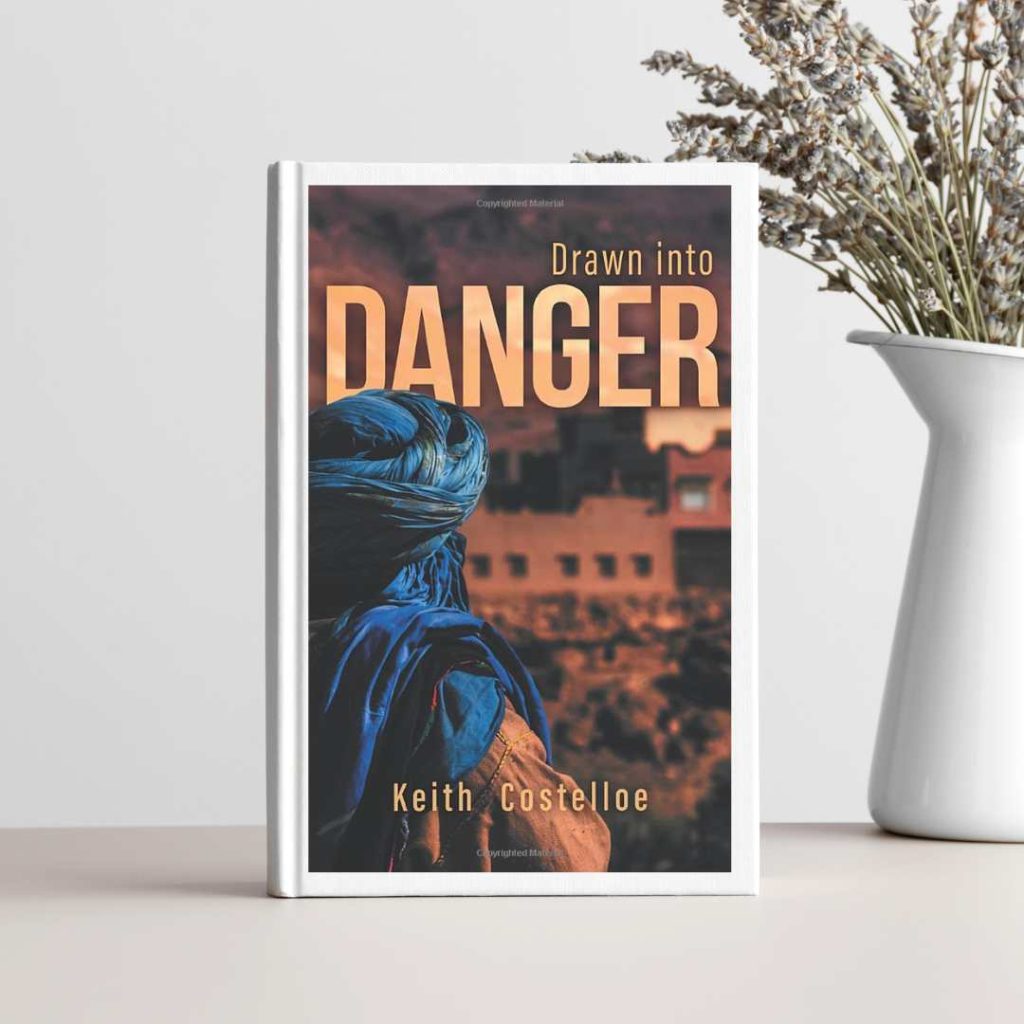“Drawn Into Danger: Living on the Edge in the Sahara” by Keith Costelloe is a mesmerizing literary journey that beckons readers into the heart of the Algerian desert, where danger and intrigue lurk around every dune. In this gripping tale, Costelloe masterfully crafts a narrative that seamlessly blends adventure, mystery, and human emotion, creating a reading experience that is as exhilarating as it is thought-provoking.

The story follows the protagonist as they embark on a daring expedition into the unforgiving Sahara, a landscape that serves as both a breathtaking backdrop and a formidable adversary. From the stark beauty of the desert days to the eerie stillness of the desert nights, Costelloe’s vivid descriptions transport readers to a world where survival is not guaranteed and every decision carries weight.
One of the most compelling aspects of “Drawn Into Danger” is the depth of its characters. Each individual, from the fearless protagonist to the enigmatic supporting cast, is brought to life with nuance and complexity. As the story unfolds, relationships are tested, alliances are formed and broken, and the true nature of each character is revealed in unexpected ways. It is this rich tapestry of personalities that adds layers of intrigue and suspense to the narrative, keeping readers eagerly turning the pages to uncover the next twist in the tale.
Costelloe’s prose is both lyrical and evocative, painting a vivid picture of the harsh beauty of the Sahara and the challenges faced by those who dare to venture into its depths. The author’s attention to detail is impeccable, immersing readers in the sights, sounds, and sensations of the desert landscape. Whether describing the shimmering heat haze on the horizon or the eerie silence of a moonlit night, Costelloe’s writing is a masterclass in atmospheric storytelling.
At the heart of “Drawn Into Danger” lies a compelling exploration of themes such as courage, loyalty, and the resilience of the human spirit. Through the trials and tribulations faced by the characters, Costelloe delves into the complexities of human nature, shining a light on the depths of our capacity for both good and evil. As the characters grapple with moral dilemmas and personal demons, readers are invited to reflect on their own beliefs and values, making this not just a thrilling adventure tale, but a profound meditation on the human experience.
In addition to its gripping plot and well-drawn characters, “Drawn Into Danger” also offers a window into the rich cultural tapestry of Algeria. From the remote hermitages of the desert to the bustling markets of Algiers, Costelloe’s novel is steeped in the sights, sounds, and traditions of this vibrant country. Through his meticulous research and immersive storytelling, the author brings to life a world that is as enchanting as it is perilous, inviting readers to explore its hidden depths and uncover its secrets.
In conclusion, “Drawn Into Danger: Living on the Edge in the Sahara” is a captivating and enthralling read that will appeal to fans of adventure, mystery, and literary fiction alike. With its compelling characters, evocative prose, and richly detailed setting, Costelloe’s novel is a tour de force that will keep readers spellbound from the first page to the last. So, grab a copy, buckle up, and prepare to be drawn into a world of danger, discovery, and daring escapades unlike any other.
Drawn Into Danger: Living on the Edge in the Sahara” by Keith Costelloe- Available on Amazon
Rating: ⭐️⭐️⭐️⭐️⭐️ (5/5)
